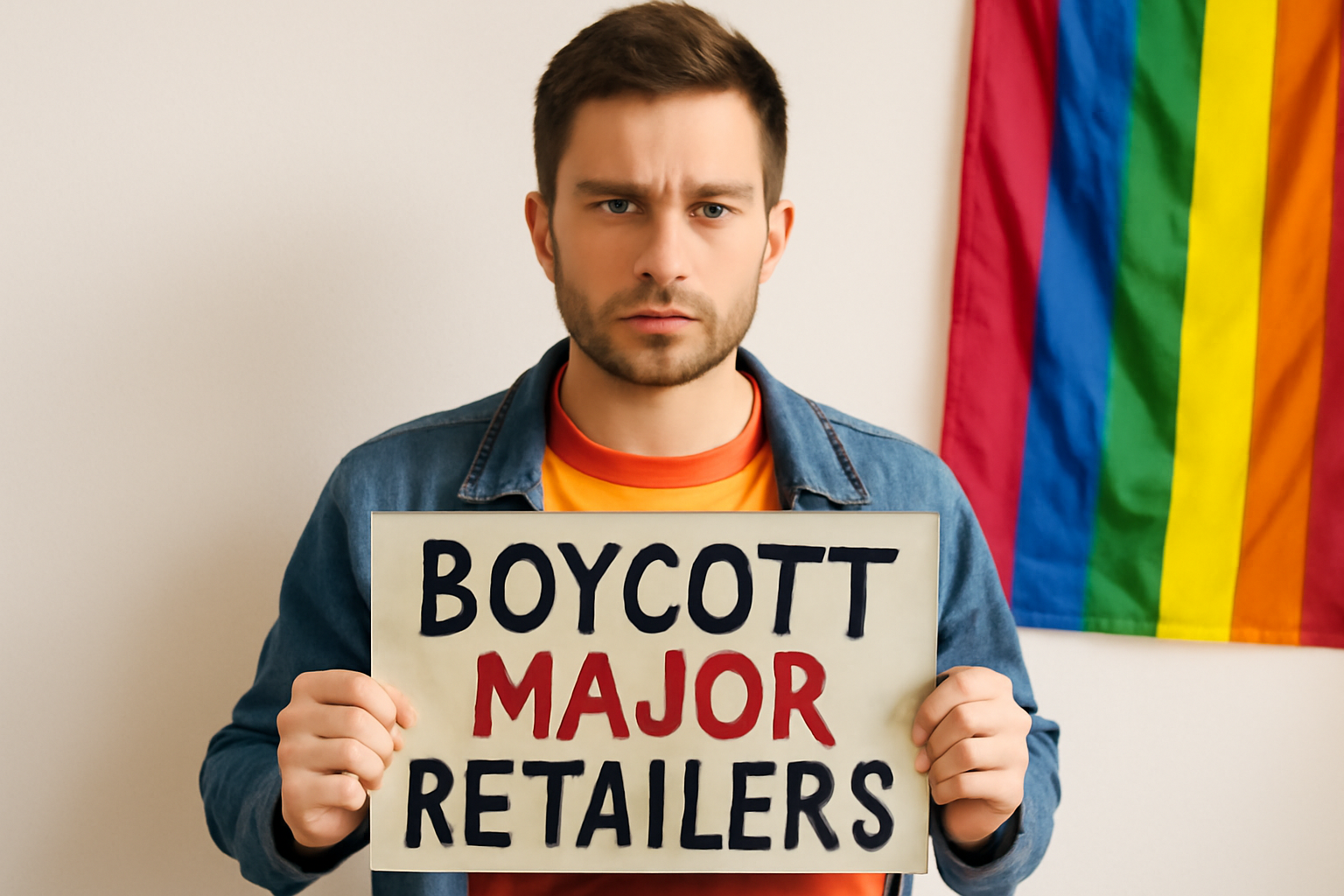
February 28 marked the beginning of a significant consumer boycott targeting major retailers that have scaled back their diversity, equity, and inclusion (DEI) initiatives. This 24-hour economic blackout is the first in a series of planned actions by activists and consumers, designed to protest companies in response to recent political moves at the federal level.
The boycott's organizer, John Schwarz, known as TheOneCalledJai on Instagram, emphasized the importance of this action in a video post. Schwarz stated that the protest serves as a reminder to corporations that "we the people are the system." By uniting for a single day to "turn it off," Schwarz believes the boycott will demonstrate the power consumers hold over large businesses.
Jason Williams, a professor of Justice Studies at Montclair State University, highlighted the boycott's political implications. According to Williams, the action sends a clear message to companies that consumers are vigilant and unwilling to tolerate the abandonment of diversity and inclusion efforts.
Targeting Major Brands
Among the companies targeted in this initial boycott are well-known retailers such as Target, Walmart, Best Buy, and McDonald's. The protest against these companies underscores a growing dissatisfaction among consumers who feel that corporate promises of diversity and inclusion have been broken.
Target, in particular, has faced criticism due to its prior reputation as a champion of progressive values. Following the murder of George Floyd in 2020, Target emerged as a leading advocate for DEI. However, recent actions to reduce these efforts have sparked discontent, leading to the national boycott launched by civil rights activists in Minneapolis on February 1, coinciding with Black History Month.
Corporate Backtracking and Public Response
The issue of companies retracting their DEI commitments is not new. Even before the current political climate, many corporations had begun to scale back their diversity initiatives due to pressure from right-wing pundits and activists, such as Robby Starbuck. Companies like Walmart, Ford, Harley-Davidson, and Tractor Supply faced calls to reduce their DEI efforts, illustrating the intense political divide surrounding these programs.
This consumer-led protest seeks to hold companies accountable and demonstrate that their customer base values inclusive practices. Schwarz and other organizers plan additional actions in the coming months, including another day of economic protest on April 18. Companies like Amazon and Nestle are expected to be included in these future boycotts, as activists continue to press for meaningful action on DEI.
Historical Impact of Boycotts
Historically, boycotts have proven to be effective tools for social change. A notable example is the "anti-woke" boycott of BudLight, initiated by conservative groups in response to an advertising campaign featuring trans influencer Dylan Mulvaney. The economic impact on BudLight showed that consumer actions can indeed influence corporate behavior.
With this pro-DEI boycott, activists aim to flip the script, using their collective purchasing power to advocate for greater diversity and inclusion in corporate America. Schwarz and others involved in the movement hope to leverage this momentum to drive lasting change in how companies approach these critical issues.
Looking Forward
As the boycott unfolds, both activists and companies will be watching closely. For the organizers, success would mean not just corporate accountability but also a renewed commitment to DEI initiatives. For businesses, the challenge lies in navigating the complex political and social landscape while addressing the needs and expectations of their diverse customer base.
The outcome of these boycotts could have significant implications for corporate policies across various industries. The ability of consumers to rally for change demonstrates the ongoing power dynamics between businesses and their customers. As these events continue to develop, the balance of power may shift, leading to a new era of corporate responsibility and social awareness.
Consumers and activists are hopeful that their efforts will result in tangible changes in corporate behavior and a reaffirmation of the values of diversity, equity, and inclusion in the business world. Only time will tell how this movement will shape the future of corporate America.
Related Posts
Trump Inaugurated as 47th President Amid Concerns for LGBTQ+ Community
Donald Trump has been sworn in as President once again, marking his second term as America's 47th leader. This significant event in U.S. politics promises profound impacts, especially concerning LGBTQ+ rights. Taking office: promises and challenges Amidst a harsh winter storm, Trump took his oath indoors at U.S. Capitol on January 20. Alongside him, Vice-President JD Vance also stepped up, both [...]
Daniel Craig's "Queer" Overlooked by BAFTA: A Surprising Omission
Daniel Craig's film, Queer, snubbed by BAFTAs despite rave reviews In a surprising twist, Daniel Craig's newest film, *Queer*, failed completely on BAFTA's nomination list this year. It's a head-scratcher, considering how critics have sung its praises and Craig delivered such a standout performance. Yet, not a single nod from BAFTA. Go figure. fans and critics baffled by BAFTA snub The exclusio [...]
Generations of LGBTQ+ Athletes: From Past Challenges to Modern Triumphs
In a captivating display that brought together voices across generations, two gay athletes from different times came together on a TV show, sharing their journeys and thoughts on LGBTQ+ representation in sports. This insightful program shed light on how inclusivity and acceptance in athletics have evolved over time. Connecting past and present: The stories behind Andrew Purchas and Davis Atkin L [...]